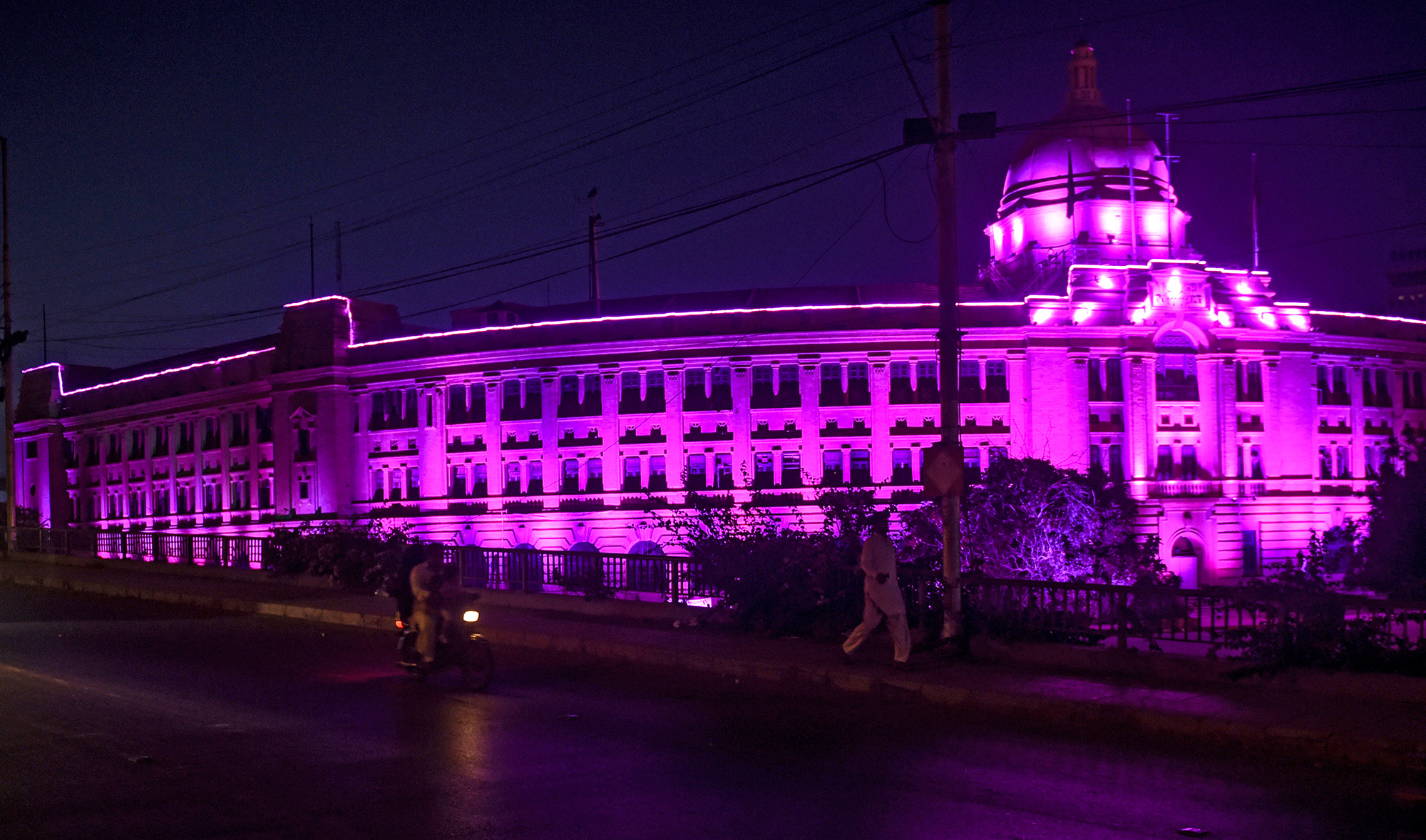ISLAMABAD: The CEO of a Pakistani startup that uses artificial intelligence and image processing to detect breast cancer said this week he was hopeful his software would break onto the global stage next year after getting approval from the United States Food and Drug Administration (FDA).
Xylexa Inc., a computer-aided diagnostics platform, has developed software that processes mammograms within seconds and produces results, pushing diagnosis accuracy up to 90 percent while also cutting costs and time.

Commuters make their way past a building lit with pink light on the occasion of the breast cancer awareness month in Karachi on Oct. 10, 2020. (AFP/File)
Breast cancer is one of the leading causes of death worldwide, and Pakistan has the highest rate of the disease in Asia, with approximately 90,000 new cases diagnosed every year. Of those, 40,000 patients do not survive, according to data from the Journal of the Pakistan Medical Association, which says approximately one out of every nine Pakistani women are likely to suffer from breast cancer. Around 77 percent cases of invasive breast cancer occur in women above 50 years, though if diagnosed early, the survival rate is close to 90 percent.
“Breast cancer’s early diagnosis is the biggest challenge [and] when a radiologist reads a mammogram with a naked eye, the [chances of] misdiagnosis are over 30 percent,” Shahrukh Babar, Xylexa’s chief executive officer, told Arab News on Monday.
“We have developed an artificial intelligence-based decision support system which reads mammograms, processes them through innovative algorithms and exactly pinpoints where the anomaly is present and what type of anomaly it is, either it is benign or belligerent,” Babar said. “There is no subscription fee for our service as hospitals and individuals can pay per study. It is a cloud based application which can be accessed easily anywhere and anytime. Even patients will be able to upload their mammograms to get the diagnosis.”
The company began to develop the software in early 2017, and it is now being used on a trial basis in hospitals in The Netherlands and Germany. Xylexa hopes to release its application performance results by November and is developing partnerships with hospitals in Dubai, Europe and the US before it launches the software commercially next year after getting FDA certification, the CEO said.
“We are launching it in Pakistan by first quarter of next year, and will be launching it globally in 2021,” Babar said, adding that his company was closely working with an advisory board of oncologists and radiologists from North America and Canada to fine-tune the product.
Healthcare specialists say death by breast cancer can be prevented in one third of women if routine mammography was performed in women over 50 years of age.
“It is quite alarming that breast cancer is becoming common in younger age groups,” said Dr. Erum Khan, a surgeon and healthcare specialist at Polyclinic hospital in Islamabad. “The the only way to tackle it effectively is early and accurate detection.”


















